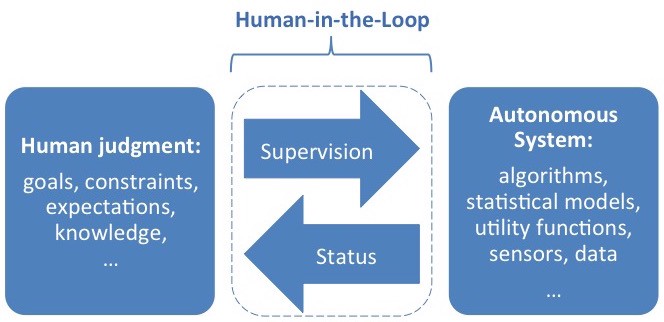LINKS WE LIKE #13
Persuading Algorithms with an AI Nudge
Fact-Checking Can Reduce the Spread of Unreliable News. It Can Also Do the Opposite.
Nathan Matias, MIT Media Lab
CivilServant worked with Reddit moderators of r/worldnews, a 15 millions-subscribers community discussing world news, to test the effects of encouraging fact-checking to respond to unreliable news. To bypass the feedback loop effect of Reddit’s ranking algorithm, that spreads tabloid news even further, the experiment’s hypothesis was to “persuade algorithms to behave differently by persuading people to behave differently”.
How Facebook’s Fact-Checking Partnership Will Work
Mike Isaac, The New York Times
In the aftermath of the American elections, Facebook's fact-checking partnership with several news organizations like The Associated Press, PolitiFact and Snopes aims to address the spread of fake news. Mike Isaac interviews the president of ABC News James Goldston, about his work within the partnership.
Society-in-the-Loop
Programming the Algorithmic Social Contract
Iyad Rahwan, Associate Professor MIT
Iyad Rahwan develops the meaning of what he calls "society in the loop", a scaled up version to the societal implications of putting "human in the loop" of automated systems. The author highlights the need to build new tools to bridge the gap between humans and governance algorithms.
Source: Iyad Rahwan, Society-in-the-Loop
Influential Computing Researchers and Practitioners Announce Steps to Prevent Algorithmic Bias: ACM US Public Policy Council Issues Seven Principles to Foster Algorithmic Transparency and Accountability
Association for Computing Machinery
The ubiquity and far-reaching impact of algorithms in different aspects of society raises transparency and accountability issues, as cases of potential algorithmic bias for e.g. in job hunting websites and social media have been reported. In January, the US Association for Computing Machinery issued a statement and list of seven principles to address the issue.
Code-Dependent: Pros and Cons of the Algorithm Age
Lee Rainie, Director of research Pew Research Center and Janna Anderson
Machine learning and algorithms have already become an intrinsic aspect of our daily lives. With great potential to solve almost any current and future problems, algorithms also raise innumerous questions and challenges, ranging from undermining individual autonomy to reinforcing social inequalities. Building on a large-scale canvassing of technology experts, scholars, corporate practitioners and government leaders, the authors try to weigh the positive and negative effects of algorithms for individuals and society.
Big data, meet Big Brother: China invents the digital totalitarian state
The Economist
The Chinese government issued this year more detailed guidelines on its "social-credit system" announced in 2014. The system, already being criticized by the state-run media, is aimed not only at scoring the financial creditworthiness of citizens but also their social and possibly political behaviour. The project echoes the debate on freedom restrictions and privacy invasions in China and outlines the risks of social control in the digital era.
The World Of (Official) Data And Statistics; Not Yet Dead
Johannes Jütting, Manager of the Partnership in Statistics for Development in the 21st Century (PARIS21)
The first World Data Forum extensively discussed how data and statistics can support the implementation of the Sustainable Development Agenda. The discussion ranged from how to produce data and statistics needed to monitor the SDGs and the role of open data, to questions on the relevance and legitimacy of public statistics. The need to enhance literacy and capacities to manage the new everyday data deluge and to build trust and partnerships were highlighted as conditions to embrace the data revolution.
AT&T Indigo Colors Data Sharing Secure
Carol Wilson
AT&T is launching the Network 3.0 Indigo, a secure data sharing platform running on a virtualized network (read more about the network’s three pillars here). The Indigo platform is intended to "knit together existing technologies" in order to create a "manageable information sharing environment" that provides appropriate protection and privacy. By enabling a safe environment, the goal is to foster data collaboration between companies and ultimately unleash the power of big data and analytics.
Financial Service Providers, Aid Agencies Agree on Joint Principles to Respond to Humanitarian Crises
Peter Vanham, World Economic Forum
The World Economic Forum announced that eighteen global private-sector (including some of the world's largest financial service providers, global IT and telecom companies) and humanitarian organizations (including UNHCR, OCHA, UNDP, WFP and the European Commission) have agreed on six principles to shape public-private collaborative response to humanitarian crises. The full report outlining the principles is available here.



![M002 - Feature Blog Post [WEB]](https://datapopalliance.org/wp-content/uploads/2025/10/M002-Feature-Blog-Post-WEB.png)





